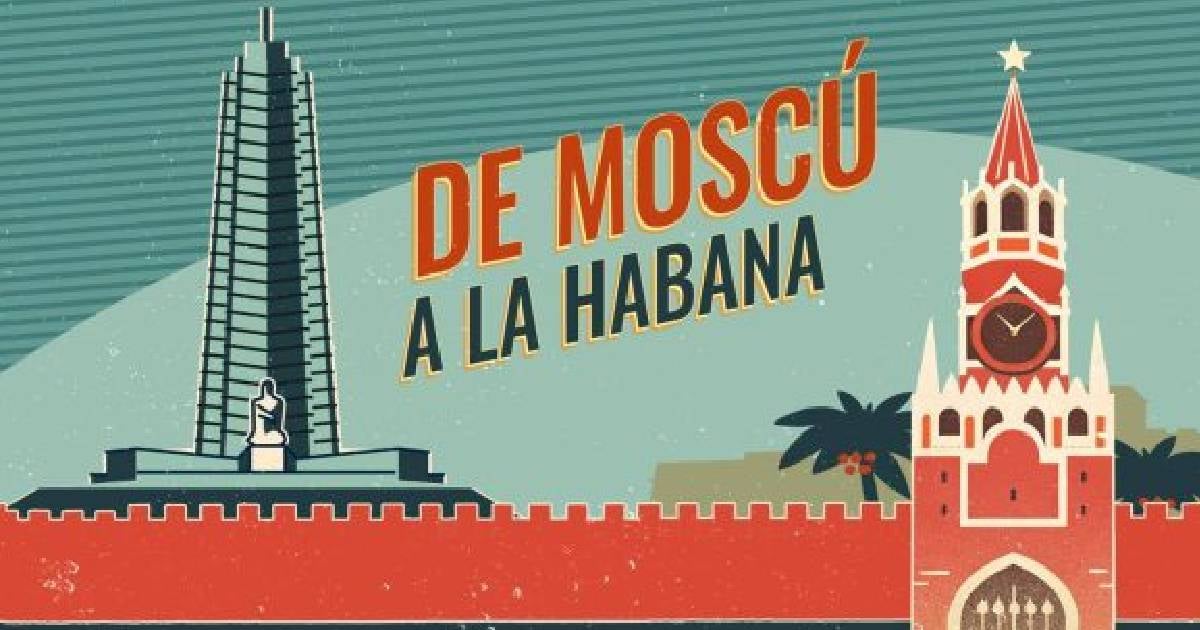Recently, Cubadebate launched a podcast titled "From Moscow to Havana" in partnership with the Russian state agency Sputnik. The show is presented as a platform to explore international issues, bridging two "friendly nations" through the voices of Cuban journalist Claudia Fonseca and Russian communicator Oleg Leonov Armas. However, the debut has been met with an outpouring of criticism and skepticism from Cuban social media users, who view it as a propaganda tool that aligns with the geopolitical interests of Havana and Moscow, rather than addressing the real concerns of the Cuban people.
A Misaligned Focus on International Affairs
The inaugural episode covered topics such as the tariff war between Donald Trump and China, election fraud allegations in Ecuador by President Daniel Noboa, and advancements in Russian space exploration. Many internet users argue that this focus indicates the podcast's preference for global narratives over pressing national issues. "Why isn't Ukraine on the podcast's agenda?" questioned one user, highlighting the omission of a major topic in Russian foreign policy.
Critics further expressed their discontent with the podcast's lack of focus on local issues. “Why not create a podcast about the numerous problems marking the national agenda?” asked another commenter, frustrated by the disconnect.
Sarcasm and Distrust Amid Nostalgia
Some comments delved into ideological and cultural critiques. One user sarcastically suggested naming the podcast after the distance between Havana and Moscow, "Game 9550," reflecting nostalgia for the former Soviet influence in revolutionary Cuba. Another comment mocked the supposed material benefits of the alliance with Russia, questioning the authenticity of Russia's support for Cuba's 2025 goals.
Despite the overwhelmingly critical tone, there were a few positive responses, such as one user who praised the presenters with a brief: “Excellent program, brothers.”
Is It Informative or Ideological?
"From Moscow to Havana" appears to be part of an official strategy to strengthen the alliance between Havana and Moscow not only in diplomatic and economic terms but also in discourse. This is not the first instance of Cuban state media collaborating with ideologically aligned international platforms, but the podcast emerges at a particularly sensitive time, with Cuba grappling with a severe internal crisis, widespread shortages, and growing social unrest.
Although intended as a space for diverse reflection, many citizens point out that the topics discussed are disconnected from the national agenda. The podcast exemplifies the widening gap between media power and the needs of the populace. While officials look toward Eurasia, Cubans are demanding attention to the challenges they face in their daily lives. As of now, "From Moscow to Havana" has gained significant attention, but as a target of critique rather than a trusted news source.
Public Reaction to "From Moscow to Havana"
Why did "From Moscow to Havana" face criticism?
The podcast was criticized for being perceived as a propaganda tool aligned with the geopolitical interests of Cuba and Russia, rather than addressing the real concerns of the Cuban people.
What topics did the first episode cover?
The first episode discussed the tariff war between Donald Trump and China, election fraud allegations in Ecuador, and advancements in Russian space exploration.
How did some social media users react to the podcast?
Many social media users reacted with sarcasm and skepticism, criticizing the podcast for its lack of focus on local issues in Cuba.
